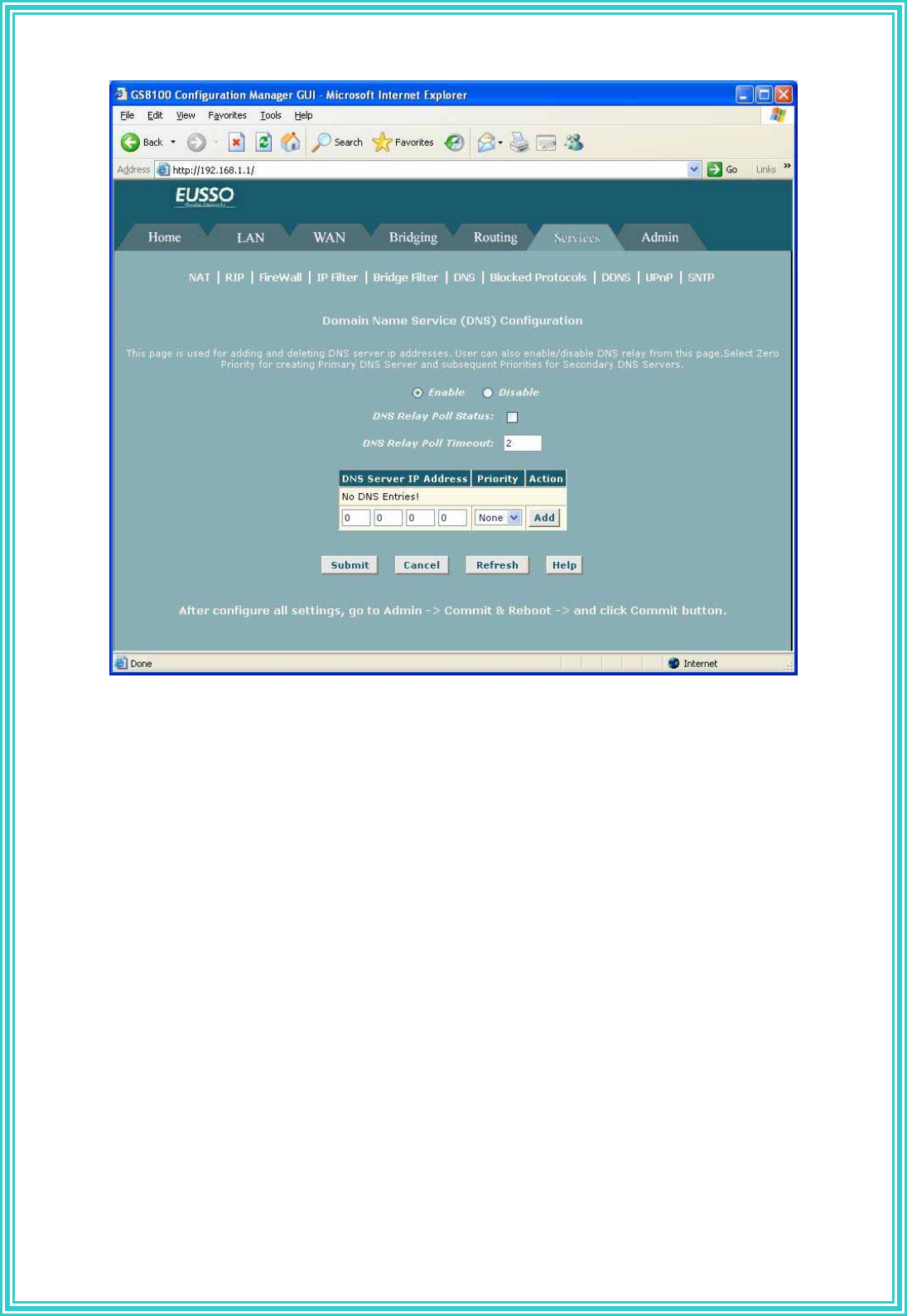
83
Multiple DNS addresses are useful to provide alternatives when one of the servers is down
or is encountering heavy traffic. ISPs typically provide primary and secondary DNS addresses,
and may provide additional addresses. Your LAN PCs learn these DNS addresses in one of
the following ways:
z Statically: If your ISP provides you with their DNS server addresses, you can assign the
addresses to each PC by modifying the PCs' IP properties.
z Dynamically from a DHCP pool: You can configure the DHCP Server feature on the
ADSL/Ethernet router and create an address pool that specify the DNS addresses to be
distributed to the PCs.
5.7.7 Blocked Protocols
The ADSL/Ethernet router is capable of sending and receiving information in a variety of
protocol formats. The Blocked Protocols feature enables you to prevent the ADSL/Ethernet
router from passing any data that uses a particular protocol. Unlike the IP Filter feature, you
cannot specify additional criteria for blocked protocols, such as particular users or destinations.
However, when you are certain that a particular protocol is not needed or wanted on your
network, this feature provides a convenient way to discard such data before it is passed.


















